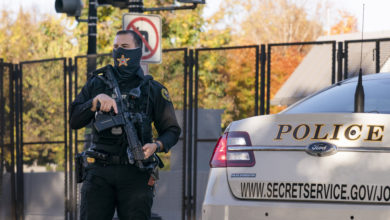Moderna Asks For Vaccine Authorization for Kids Under Six Years Old

OModerna requested an emergency use authorization from the U.S. Food and Drug Administration for COVID-19 vaccinations in children aged 6 months to six years.
Now, the Cambridge-based company has become second in line to apply for permission for an anti-COVID-19 mRNA vaccine for that age group. Pfizer BioNTech was the other manufacturer of mRNA vaccines. In February the FDA requested authorization to the shot. The rolling submission process allowed the company to provide more data that would allow the agency review. The FDA initially planned to review Pfizer-BioNTech’s request at that time, but decided to postpone a scheduled meeting of its independent panel of experts until the company provided additional data. Studies on children younger than two and four years of age were completed December 2021. Although the vaccine provided good protection for those 6 months through two years, there was no significant immune reaction in the six-month to two year olds. Since then, the company has tested another dose of vaccine in order to generate a more robust immune response. These data will be compared by the FDA to those of Moderna for these children.
Moderna’s recent studies show that vaccinated children from six months to six years old were able to generate antibodies that could neutralize SARS-CoV-2 at levels similar to those produced in vaccinated adults. One difference: the children in Moderna’s study were given a quarter of the dose given to adults—which still produced a robust immune response, which could be due to the fact that children’s still-developing immune systems might respond more aggressively to vaccines. That’s a positive, since lower doses have been linked to fewer side effects.
As with the Pfizer-BioNTech shot, Moderna’s study also found that antibody levels were higher among the youngest children, from six months to two years old, compared to levels among two to six year olds. Researchers aren’t clear why the youngest kids generated stronger immune responses, but it may be related to their faster growing bodies, including the organs that are responsible for making antibodies and can contribute to a more active response.
“We learned that you can give the Moderna vaccine to little kids and it’s safe and effective,” says Paul Burton, chief medical officer at the company. “As a dad and as a physician, that’s really important. When vaccinated against COVID-19 spike protein vaccine, little kids are able to mount an extremely robust immune response. This means that they can be safely protected. That’s good news for kids and good news for their caregivers.”
Moderna’s team tested its vaccine in this group against the Omicron variant, which is now responsible for the bulk of new infections. The efficacy in protecting kids from six months to six years old from an Omicron infection ranged from 37% to 51%, depending on the children’s ages, with the youngest enjoying stronger efficacy. While that’s lower than the initial vaccine efficacy seen against the original strain of the virus, which was above 90%, the 40-50% range is similar to that seen among adults who were immunized with Moderna’s shot and exposed to Omicron.
Moderna’s scientists are already studying a booster dose for childern over six (for whom the vaccine is already authorized), and also plan to start investigating whether a booster might be necessary for children six months to six years. Burton anticipates that these data will become available by the end of this year.
The FDA will now review the company’s data and make a decision about whether Moderna’s vaccine is safe and effective enough for the youngest children; the agency has not scheduled a meeting of its panel of independent experts yet.
Here are more must-read stories from TIME





